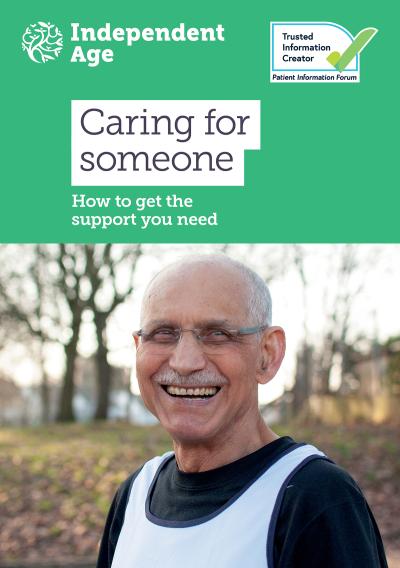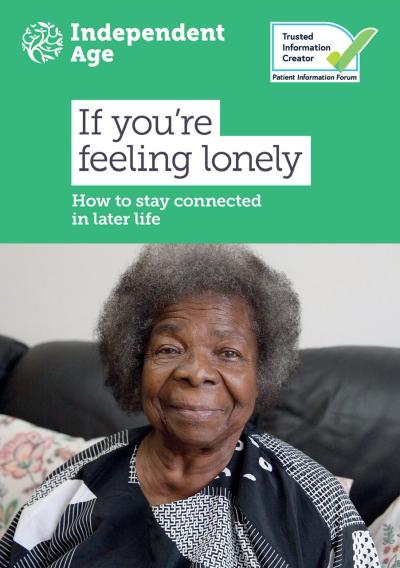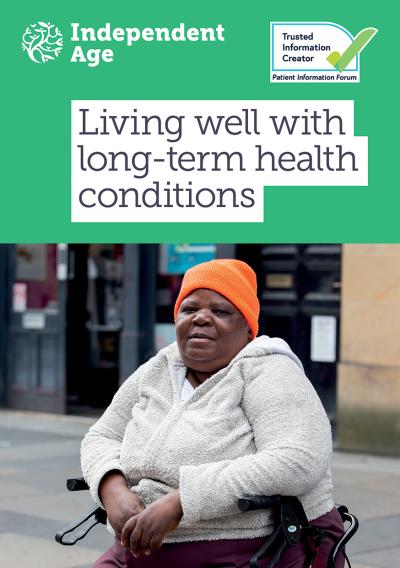Related publications

Caring for someone

If you're feeling lonely

Being a carer can be emotionally and physically demanding. You may be so busy looking after someone else that you neglect your own health. But taking good care of yourself is important, not only for your own sake but also to give you the strength to go on caring.
It’s a good idea to talk to someone about your situation and how you’re feeling. Tell your friends, family and GP that you are a carer so they’re aware of the pressure you’re under. You should also get a carer's assessment from your local council or carer centre to talk about any other services or support that might help you.
It can be helpful to talk to people in the same situation, so you can share experiences and get advice. You could join an online carers’ forum or a carers group. Carers UK has an online forum and can also put you in touch with local support groups. You could also contact your local Age UK or ask your council about support groups in your area.
Organisations for people with a specific health condition or illness also offer support for carers – for example:
Looking after someone can affect both your physical and mental health, but there are steps you can take to reduce the impact. Try to eat a balanced diet, get some regular exercise and get enough sleep.
You could also ask your GP about health checks and screening programmes. You can get a free flu jab if you receive Carer’s Allowance or Carer Support Payment, or if you’re the main carer for an older or disabled person who may be at risk if you fall ill.
If lifting and moving someone is part of your caring responsibilities, you may feel a strain on your back. The NHS website has some tips on how to lift someone safely. Any lifting or moving you need to do should be discussed in your carer’s assessment, to make sure you have any equipment or other support you need.
The challenges of caring could make you more vulnerable to stress and mental health problems. See our guide Dealing with depression for advice on how to cope if you’re feeling low. If you’d like to talk to someone about what’s troubling you, call Samaritans. You could also contact the Mind information line or the Scottish Association for Mental Health to find out about support in your area. If your low mood continues, speak to your GP.
If your caring responsibilities are affecting your health, make sure you mention this during your carer's assessment.
Looking after someone can change the nature of the relationship you have with them and put a strain on your other relationships with friends and family. If you’re caring for a partner, it may take time to adjust to your changed situation.
You may find it helpful to speak to a specialist relationship counsellor. Contact Relate or Relationships Scotland to find out about services in your area. There's usually a charge for counselling sessions.
Being a carer may sometimes leave you feeling lonely and isolated. It’s important to keep in touch with family and friends even if it’s just a quick phone call. Our guide If you’re feeling lonely has some helpful suggestions for ways to stay connected.
Make sure you get a regular break from caring, even if it’s only 10 minutes. It’s important for your quality of life to find time to do the things you enjoy. If this is difficult for you, mention it at your carer's assessment.
You could ask friends or family to help. You could also use telecare to help keep the person you look after safe and give you peace of mind when you’re not with them. See our factsheet Technology to help you at home for more information.
You may be able to arrange respite care to give you a regular break or for a longer period to give you the chance to go on holiday.

Contact Carers UK or Carers Trust for details of local support organisations.
Find details of your local council on Gov.uk or mygov.scot.